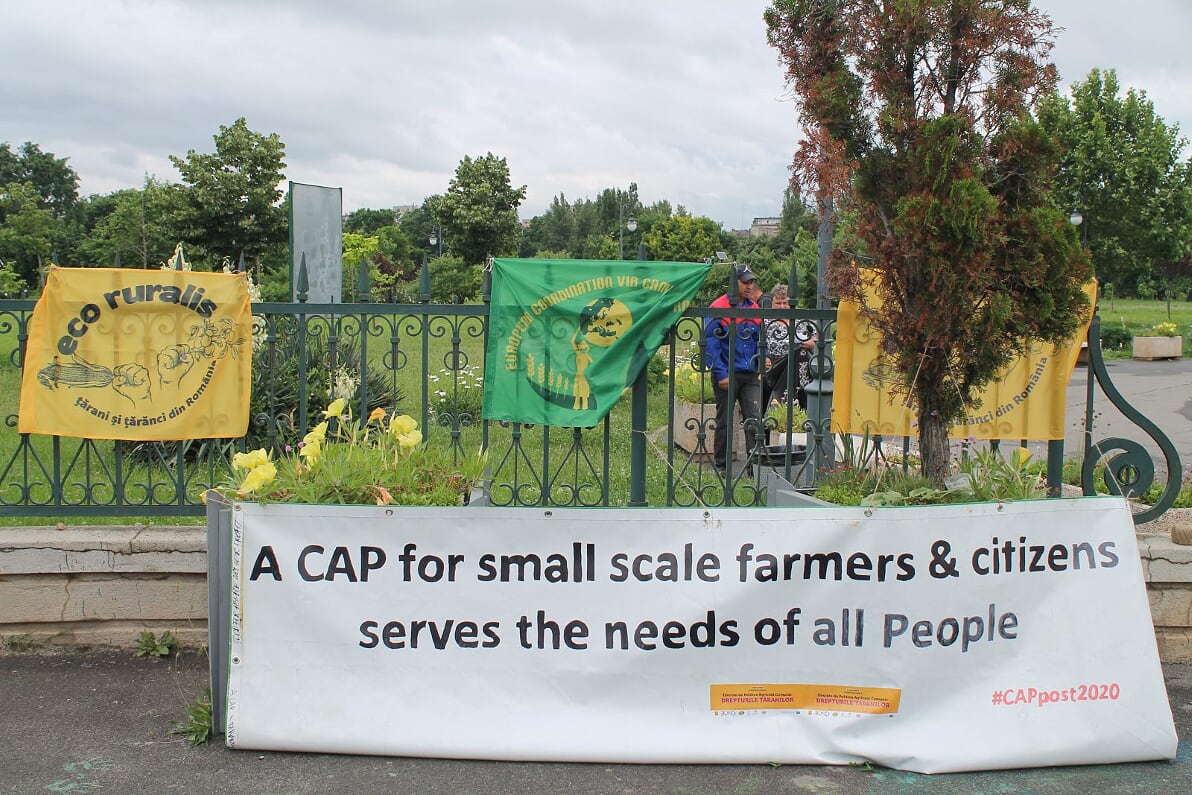22 October 2020, Brussels
European Coordination Via Campesina (ECVC) criticises the positions of the European Parliament and the European Council on the post-2020 CAP, which will not be sufficient to overcome the challenges facing farmers, European citizens and the planet. This will make it difficult to meet the objectives of the CAP and, even more so, the objectives of the European Commission in its flagship policies and strategies within the Green Deal.
To achieve real change, sufficient market regulation instruments are needed, to generate prices that cover the costs of healthy and sustainable production. There must be a fair redistribution of support to this model, which is based on small and medium-sized farmers.
In particular, the Parliament’s position will not lead to a fairer distribution of support, as redistributive payments and payment capping become optional for Member States and the progressive reduction of payments for large farms is removed. In this way, the political forces in the European Parliament are more concerned about the minority of less than 2% of EU farmers who would be affected by a capping or a progressive reduction of support.
Similarly, the focus of eco-schemes on environmentally friendly ‘practices’ (rather than environmentally friendly ‘systems’) may mean that large farms with strong financial resources will be able to comply with these practices via investment, while excluding small and medium farmers who can make a move towards sustainability and agroecology in this period. The EU has a responsibility to ensure that subsidies do not go to farms that tick the box of organic “practices” but maintain a totally unsustainable system of industrial farming. Moving towards agroecology requires measures that address the root causes of the problems. The globalised market determines the agricultural model and it is a mistake to think that eco-schemes alone can bring about a change in that agricultural model.
However, ECVC is satisfied to see the Parliament agree, for the first time, to include mandatory references to social conditionality. This is a battle that ECVC has been fighting since the first draft of the post-2020 CAP reform.
The context in which this reform was born, more than two years ago, was very different, and the new European Commission has now signposted a new economic, social and environmental course based on the European Green Deal and the Farm to Fork and Biodiversity Strategies. This CAP does not integrate the objectives of this strategy and is not coherent. How and when will these policies be integrated? With what measures? Since the objectives set out by the European Commission in its strategies are so important, should this reform not have included them with the necessary instruments and support?
ECVC will continue to work for small and medium-sized farmers and for an agricultural model that integrates economic, social and environmental values into a clear path towards agroecology, with public policies that provide the sufficient instruments to achieve the objectives they set out. The strategies and objectives of the European Commission confirm that this is the sustainable agricultural model we need and that agroecology is the way forward. The European Commission is saying that the status quo is not valid and, despite the vote, together with its organisations, ECVC will continue to work on the strategic plan in each MS to integrate these values.
Contacts:
- Andoni García Arriola – ECVC Coordinating Committee: +34 636 451 569- ES, EUZ
- Alessandra Turco – ECVC Coordination Committee: +34 76 42 71 70 – IT, ES, FR
- José Miguel Pacheco – ECVC Coordination Committee: +351 918736441 – ES, PT

